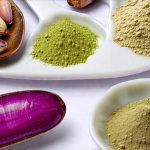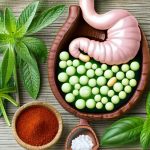Indigestion, that uncomfortable feeling of fullness, bloating, heartburn, nausea, or even just general discomfort in your upper abdomen, is something most people experience at some point. It’s rarely a sign of serious illness but can be incredibly disruptive to daily life. Often linked to dietary choices, stress levels, and eating habits, indigestion isn’t usually a condition you treat so much as one you manage. For centuries, people have turned to herbal remedies to soothe digestive upset, and among the most intriguing – and increasingly popular – are bitters. These aren’t the bitter chocolate kind; rather, they’re concentrated botanical extracts designed to stimulate digestion and ease discomfort through a unique physiological mechanism.
The resurgence of interest in bitters isn’t just about returning to “old ways.” Modern science is beginning to understand how these complex formulas work, supporting anecdotal evidence accumulated over generations. While not a quick fix for all digestive woes, bitters offer a gentle, holistic approach that can complement other healthy lifestyle choices. It’s important to remember that individual responses vary and what works well for one person might be less effective for another, highlighting the importance of mindful experimentation and listening to your body. This article will delve into the world of bitters, exploring how they work, when to use them, what types are available, and considerations for incorporating them into your wellness routine – all specifically relating to their potential benefits for indigestion.
How Bitters Work: The Digestive System Connection
Bitters operate on a fascinating principle known as cephalic phase digestion. This refers to the initial stage of digestion that begins even before food enters your stomach. When you taste something bitter, it triggers a cascade of events designed to prepare your body for incoming nourishment. Specifically, bitters stimulate receptors in the mouth which send signals to the brain. – These signals then prompt the release of digestive juices like saliva, gastric acid, and bile. – They also encourage peristalsis, the wave-like muscle contractions that move food through the digestive tract. This activation effectively primes your system for efficient breakdown and absorption of nutrients. Think of it as a “wake-up call” for your digestive organs.
The modern diet often lacks naturally bitter foods, which can contribute to sluggish digestion. We’ve become accustomed to sweet, salty, and umami flavors, potentially diminishing our bodies’ natural responsiveness to bitterness. Bitters help restore this sensitivity, essentially re-educating the digestive system. Unlike antacids that neutralize stomach acid (which can sometimes hinder proper digestion in the long run), bitters work by enhancing the body’s own digestive capabilities. They don’t mask symptoms; they address potential underlying causes related to insufficient digestive secretions or motility. If you suspect deeper issues, consider when to ask for a motility scan and what it shows.
It’s crucial to note that this isn’t about achieving a powerfully bitter taste – a few drops are usually all that’s needed. The effect is more about the stimulation of the receptors, not necessarily the intensity of the bitterness itself. Furthermore, the botanical complexity of well-formulated bitters provides benefits beyond simple stimulation; many contain herbs known for their anti-inflammatory or carminative (gas-relieving) properties, adding layers to their digestive support.
Choosing the Right Bitters: A Spectrum of Options
The world of bitters is surprisingly diverse. There’s no one-size-fits-all solution, and different formulas cater to various needs and preferences. – Gentian is often considered a classic bitter herb, known for its potent digestive stimulation. However, it can be quite strong and isn’t ideal for everyone. – Dandelion root offers a milder bitterness while supporting liver function and bile production which aids in fat digestion. – Artichoke leaf similarly supports liver health and can help relieve bloating.
Beyond single-herb preparations, many bitters are complex blends containing multiple botanicals, each contributing its unique properties. Some formulas specifically target bloating (incorporating herbs like chamomile or fennel), while others focus on improving nutrient absorption (including ginger or turmeric). Pay attention to the ingredient list and consider your specific digestive concerns when making a choice. Look for reputable brands that use high-quality ingredients and transparent manufacturing processes. Organic options are often preferred to minimize exposure to pesticides. If you suspect food sensitivities play a role, you might explore egg intolerance in children or even soy intolerance reactions.
How & When to Take Bitters for Indigestion
Timing is key with bitters. The most effective approach is to take them before meals—typically 15-30 minutes prior. This allows the cephalic phase digestion process to kick in before food arrives, maximizing its benefits. – Start with a very small dose – usually just a few drops (7-30) diluted in a small amount of water or sparkling water. You can also add them directly to your tongue, though some find the taste too intense this way. – Experiment to find what works best for you; start low and gradually increase the dosage if needed.
Bitters aren’t meant to be taken continuously indefinitely. While generally safe, prolonged use could potentially desensitize the receptors over time, diminishing their effectiveness. Consider cycling bitters – using them for a few weeks or months, then taking a break. For occasional indigestion, take them as needed before meals that are likely to cause discomfort. Avoid taking them on an empty stomach if you’re particularly sensitive, as this can sometimes exacerbate nausea. Remember, bitters aren’t intended to replace medical advice; if your indigestion is severe or persistent, consult a healthcare professional. In some cases, at-home digestive test kits can provide helpful insights.
Beyond the Basics: Lifestyle & Dietary Considerations
While bitters can be a valuable tool for managing indigestion, they are most effective when combined with other healthy habits. – Dietary adjustments: Identify and eliminate trigger foods that worsen your symptoms. Common culprits include fatty, fried foods, spicy dishes, caffeine, alcohol, and carbonated beverages. Focus on easily digestible whole foods like fruits, vegetables, lean proteins, and whole grains. – Mindful eating: Slow down, chew your food thoroughly, and eat in a relaxed environment. Stress can significantly impact digestion, so practicing mindfulness techniques during meals can be helpful.
- Hydration: Drink plenty of water throughout the day to support optimal digestive function. – Regular exercise: Physical activity promotes healthy gut motility and reduces stress levels. These combined approaches create a synergistic effect, maximizing the benefits of bitters and improving overall digestive health. Bitters are not a magic bullet but rather one component of a holistic strategy for addressing indigestion and promoting long-term wellness. If you experience an itchy throat alongside indigestion, investigate the GERD link. Furthermore, understanding your family history could prompt consideration of genetic testing for hereditary GI cancers. Don’t hesitate to discuss concerns with your doctor or even consider what to expect during a rectal exam for digestive symptoms if necessary.


















